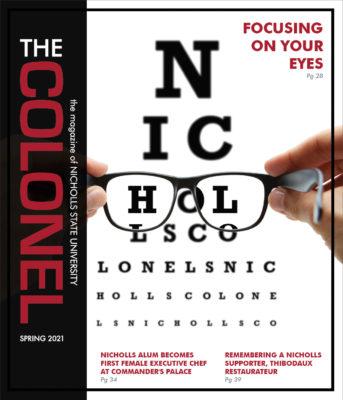ASK THE EXPERTS
We know the pandemic is complicated and there is a lot of developing information in the media to digest. We turned to science education professor Dr. Aimee Hollander (AH, left) and campus physician Dr. Anna Falcon (AF, right) to explain what we know so far.
Q: Why is this scarier than the flu? Is it scarier than the flu?
AF: Both can spread from person to person when an infected person is coughing, sneezing or talking. This is because both viruses travel through the air. One difference is the transmission through the airborne route since COVID-19 is found to stay in the air for several hours. There are several other differences between the two, which reinforce why COVID-19 must be taken so seriously. First, the incubation period for influenza is 1-4 days compared to 2-14 days for COVID-19. This results in many people infected and asymptomatic potentially exposing others for a longer time. Another difference lies in the hospitalization and mortality rates. With influenza, those numbers are 1-2 percent and 0.1-0.2 percent, respectively. With COVID-19, they are 10-20 percent and 1.5 percent in the United States. Also, there is no definitive treatment, nor is there a vaccine for COVID-19 at present. However, there are some medications that show promise treating coronavirus symptoms, and a lot of work is being done to make a vaccine.
Q: What can we do to protect ourselves?
AF: Since there is no vaccine at present to prevent coronavirus disease, the CDC recommends avoiding exposure to this virus. This requires taking steps to protect yourself from getting sick and protecting others. The best ways to protect yourself include cleaning your hands often and avoiding close contact with others. The CDC recommends washing hands with soap and water because it significantly reduces the amounts of all types of germs and chemical. An alcohol-based sanitizer that contains at least 60 percent alcohol can also be affective. Another way to protect yourself is to proactive social distancing by staying at least 6 feet apart from others. This is also necessary to “flatten the curve” or to slow the rate of the virus’ spread. We all need to do our part to slow the spread of this virus. This will help our hospitals handle the numbers of people needing treatment, hospital beds, medications and ventilators.
Q: What can we do to protect our families?
AF: You can also take steps to protect others by cleaning and disinfecting surfaces daily; wearing facemasks if you are sick; cover all coughs and sneezes; and self-isolating if you are sick after seeking medical care.
Q: What is herd immunity?
AH: When most of a population is immune to an infectious disease, this provides indirect protection to those who are not immune to the disease. This is called herd immunity or herd protection. For example, if 80 percent of a population is immune to a virus, four out of every five people who encounter someone with the disease won’t get sick (and won’t spread the disease). This is how the spread of infectious diseases is kept under control. Vaccinations create herd immunity hence how we eradicated diseases like polio.
Q: Why is “let’s all get exposed and get over it” not a good idea?
AH: If we abruptly end social distancing, we could overwhelm our healthcare system, which is already extremely busy with COVID-19 infected patient. People are still having babies, still need to have surgery and are still getting sick with other diseases that need hospitals capable of taking care of these patients. Additionally, we see that people who seem healthy with no other diseases are getting severely ill and even dying. These social distancing guidelines are to keep as many people safe and well as possible. In the next year, we should have a vaccine for this disease. If enough people get vaccinated it should create herd immunity against the disease.
Q: Is it safe to exercise outside as long as we maintain our distance?
AF: Avoiding close contact and “social distancing” does not mean to stay indoors at all times if you are healthy. It is okay to go for a walk, hike or bike ride with someone else as long as you keep 6 feet apart. This is also a time to take advantage of the modern advances of technology by utilizing services such as online meetings which can help you “virtually” gather with your best friends.
Q: It seems cases are leveling off; can I go out without a facemask?
AH: Currently, the CDC recommends you still wear a facemask when going to the store or other public places. These face masks are to protect you from spreading the virus. Scientists now recognize that those who have recovered from the disease or are asymptomatic carriers could still be shedding the virus.
Q: What do you think of Nicholls’ response?
AF: You can always be grateful for being a member of the Nicholls State University family. Our university has done and continues to do a great job of looking out for the health and success of its students at this stressful time.



